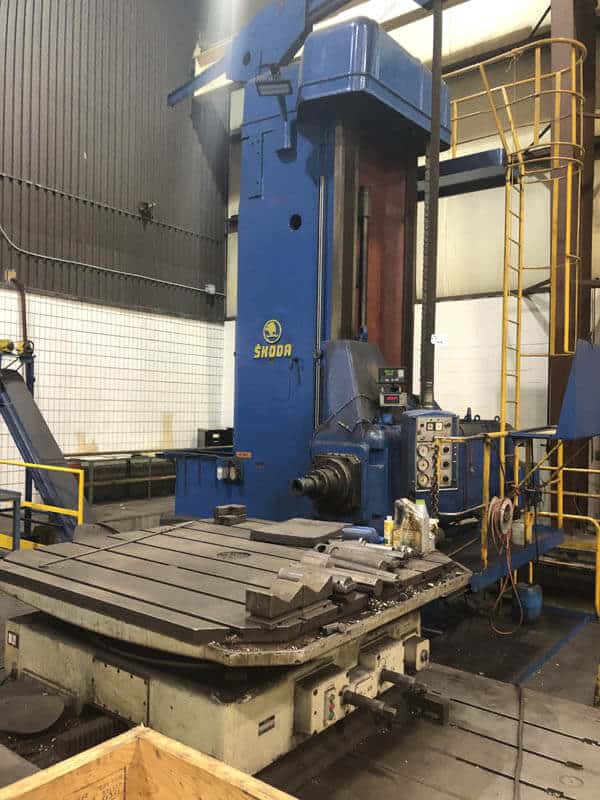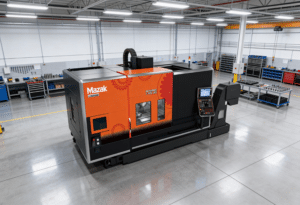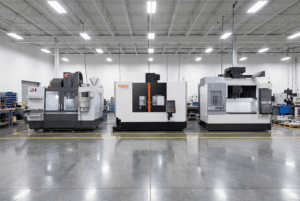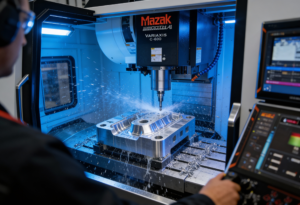CNC machines have been around for decades, providing fabrication facilities and wood shops with options for precise, high-volume production according to a computer-controlled plan. In fact, if you’re looking for used CNC machines to lower the costs of starting a business, it’s not hard to find one. In recent years, mini and micro CNC builds have become easier to produce at consumer price points, so they’re now attractive options for people looking to complete a home workshop capable of empowering practically any maker project. Used equipment is a great resource for the hobbyist looking for a first home CNC, but what do you need?
- A router or a mill?
- Horizontal or vertical operation?
- What size?
- Optimized for metal or for wood?
There are a lot of things to consider, which is why learning the terms of art associated with CNC operations is an essential first step. The difference between a mill and a router comes down to one thing, essentially: Does the part move around the tool, or does the tool move around the part.
CNC Mills Explained
Typically, mills are preferred for high-precision operations because they can control the consistency of cuts to within 1/1000th of an inch. This is accomplished by holding the cutting tool in a relatively stationary position and moving the part around it, usually along both the X and Y-axes. The Z-axis is usually controlled by the table, allowing the cutting tool to move in a linear path if necessary. When used for precision cuts with an irregular shape, it can quickly replicate nearly identical cuts, making production faster for all your highest-demand designs. Used CNC mills that are small enough to sit on a workbench or tabletop are quite common as entry-level units, but their small size limits the scope of the projects you can do. If you’re looking to work with larger parts, you need a larger machine with more rugged shielding for your protection.
Additional axes can be defined as needed for complex projects, and most CNC mills support up to five, so if you’re buying a machine that needs to be capable of adapting to the most complex ideas you can devise, it’s probably worth investing in a mill. The end mill tool used to cut can also be swapped out for different sizes and shapes, allowing for even greater customization. Finally, used CNC mills are a necessity if you’re working with hard materials like metals. Softer substances like wood, foam, or plastic compounds can be cut by either, but routers are not typically built to deal with hard metals like most modern steel alloys. With that in mind, what makes a router attractive? When is it the right purchase?
CNC Router Use Cases
Routers are usually defined by the fact that the part is held to the table and moved along the Z-axis if it is moved at all, while the cutting tool is free to move on the X and Y-axes, as well as any user-defined additional axes. Most routers are designed for use with wood or other soft substances, and they’re capable of cutting speeds that far exceed most CNC mills. You may find some router builds suitable for softer metals, especially thin aluminum parts, but realistically the router is a choice that’s best reserved for fast, high-volume projects using wood, foam, or plastic.
It’s quite common to pair a router and mill in a workshop, using the mill for precision operations and harder materials and the router for basic cuts that can be done more quickly and with less concern for exacting precision. By using two operations, you can streamline the mill’s production and ensure you have parts ready to go in at the end of each cycle, while running the router only when you need to prep another batch for milling. That makes it easy to optimize your workflow when setting up a production operation. Keep that in mind if the reason you’re shopping for used CNC machines for sale to support a hobby business that’s been seeing an influx of new sales. Routers also have larger cutting areas than mills for the same floorspace or tabletop footprint, which is a point to keep in mind when deciding which one to use for a particular operation on your next project.
Upgrading Your Workshop CNCs
Often, makers realize the potential of a fully outfitted CNC workshop with a few machines built for different sized projects. When that time comes, it’s worth having a conversation about your equipment needs with the same people you trusted for used CNC machine sales when you bought your first setup. Not only will they be able to connect you to price estimates and provide details about availability, they’ll probably be able to give you the opportunity to resell any of the smaller models you’re upgrading away from. After all, Premier Equipment doesn’t just sell used CNC mills, we also buy them.



